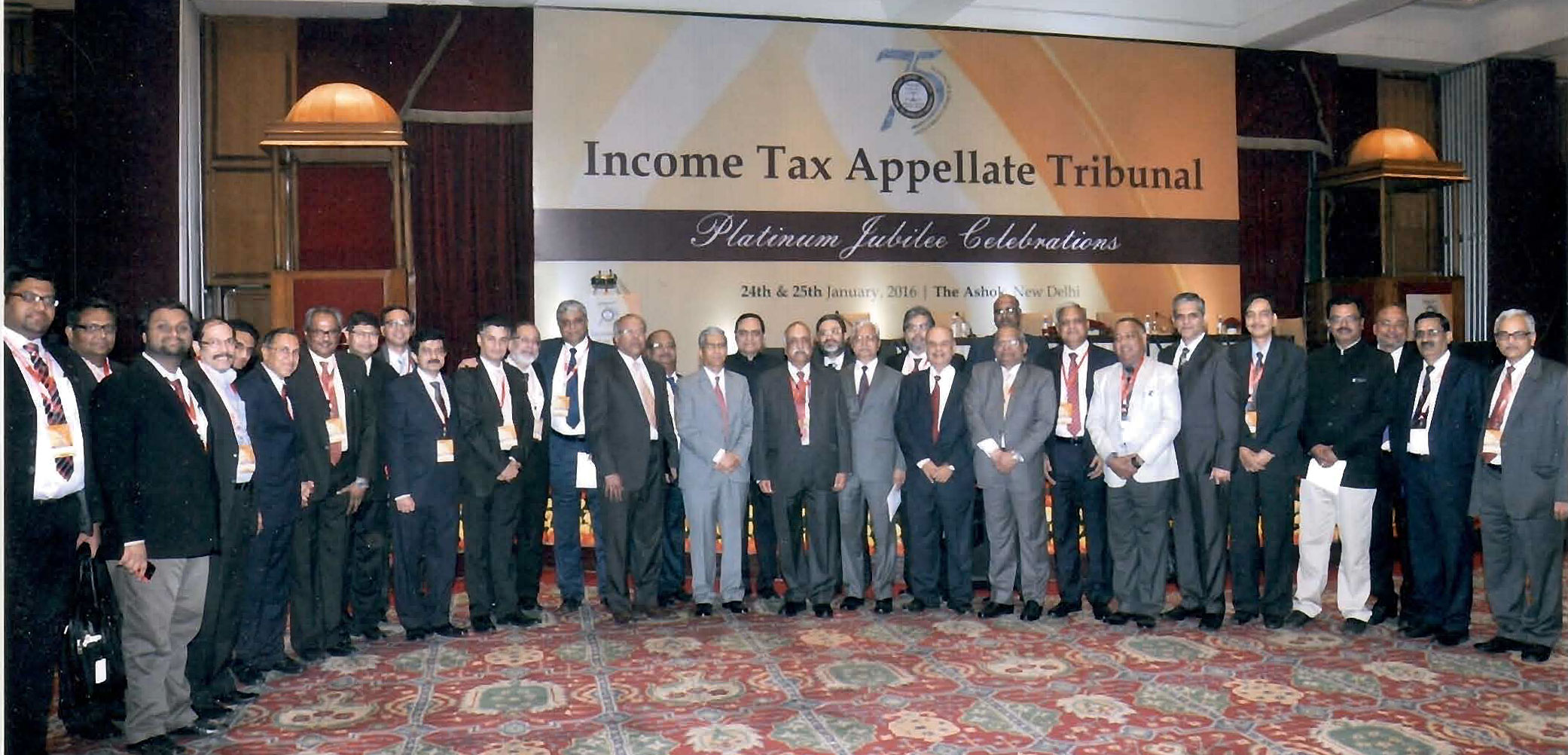During the Platinum Jubilee Celebrations of the ITAT which were recently held, eminent legal luminaries expressed their appreciation at the stellar contribution rendered by the ITAT towards the cause of justice to taxpayers. However, they also expressed concern that the ITAT cannot afford to rest on its laurels and emphasized that there are several challenges which it has to overcome.
Shri. D.V. Sadananda Gowda, the Union Minister for Law and Justice, was appreciative of the fact that the Tribunal has been able to dispose off appeals in a speedy manner. He noted that though the backlog is nearly one lakh cases, most appeals are disposed of within six months to one year from the date of institution.
However, the learned Law Minister pointed out that given the complex nature of income-tax legislation and its frequent amendments, there is a strong need for the Members to constantly update their knowledge to perform the functions assigned to them in an effective manner.

(Members of the ITAT Bar Association pose with the eminent legal luminaries present on the occasion)
Justice Shri T. S. Thakur, the Chief Justice of India, emphasized the need for the ITAT Members to be “tech savvy”. He pointed out that technical upgradation is the need of hour and that the ITAT had to do work in this regard.
Shri. Arun Jaitley, the Finance Minister, was appreciative of the role of the ITAT in fulfilling the promise of the Government in making the tax system cleaner and simpler and ensuring that “oppressive taxmen does not hover over us“. He also pointed out that once a simpler tax system comes into place, there will be lesser appeals and further efforts would be made to bring down arrears. “I do hope that with all these changes, and improved performance in the tribunal for which you are endeavoring, the arrears will be low, our tax recoveries will be higher and the harassment to the assessee would probably be least” he said.
The legal luminaries emphasized the need for the ITAT to brace itself for upcoming challenges. One issue that was a matter of concern for many is the fact that the newly appointed Members of the ITAT have not been given appropriate training and orientation. The apprehension was expressed that some of the newly appointed Members are not as well versed with the nuances of income-tax law and its procedural requirements and that entrusting them with the grave responsibility of deciding complicated matters, with huge revenue implications, does not inspire confidence amongst the taxpayers and the department.
It was suggested that a formal training programme ought to be held so as to ensure that the new Members are completely oriented towards their duties and obligations.
The dignitaries also expressed concern over the non-filling of vacancies in the ITAT. Shri. Sadananda Gowda candidly accepted this fact by observing “I am conscious of the fact that the Tribunal is facing shortage of staff and Members and for most of the time; it functioned with 20% shortage as compared to its sanctioned strength of Members”.
Another area of concern voiced at the function is the need for the ITAT to develop an internal mechanism to evaluate the performance of members. It was pointed out that the present mechanism is somewhat opaque and lacks transparency.
Concern was also expressed by some quarters that the matters are not disposed off in a speedy manner and the quality of judgements leave a lot to be desired. It was suggested that the orientation/ training programme for new Members as well as the internal mechanism referred to above could be tuned to address these concerns.
A common demand voiced by the dignitaries was that there should be an institutionalized mechanism for the elevation of ITAT Members with outstanding capabilities to higher judicial office. It was pointed out that High Courts across the Countries are bereft of experienced tax judges and that the ITAT Members, with their expertise in the subject and judicial temperament, are well placed to perform this function.
In continuation of the celebratory function, a function was held today (11th February 2016) in the Mumbai Benches of the ITAT to present a set of postage stamps (which was released by Department of Posts on 24th January, 2016) to the President of Income Tax Appellate Tribunal.
CAPITAL ASHWANI JOSHIJI,YOU ARE ABSOLUTELY CORRECT.
This reportage is worst example of journalism. Not even a single jurist’s name and contribution has been highlighted. The politicians have been eulogised. Such low standards of journalism are condemnable.
Ashwani Joshi ! you are right.